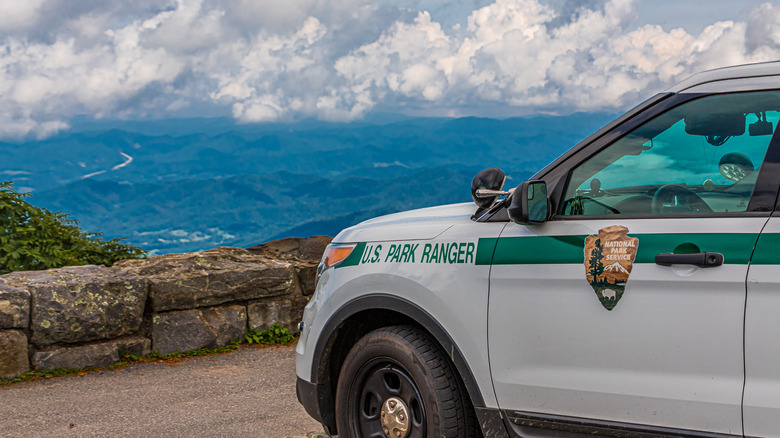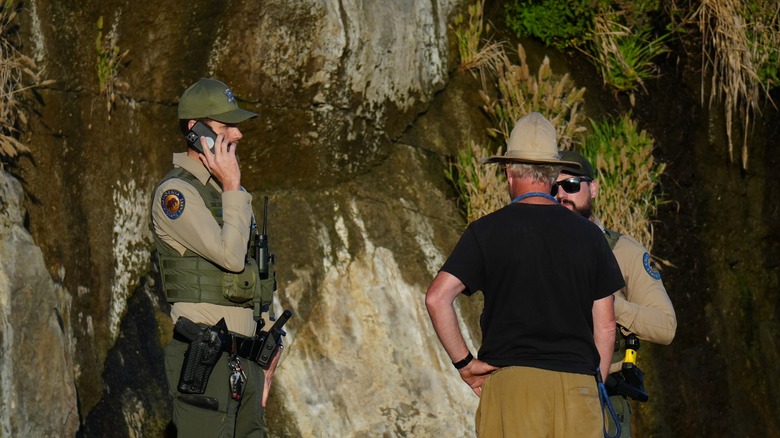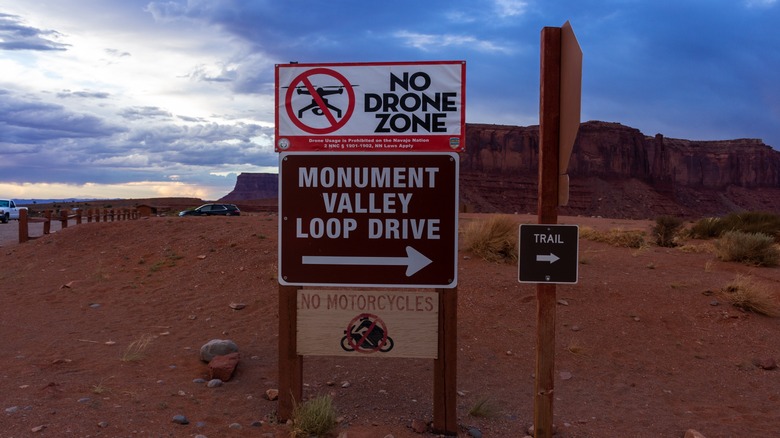The Unexpected Way That Lying Can Get You Banned From A National Park
Every year, over 300 million people visit America's National Parks to explore the wonders of the great outdoors. After all, they offer opportunities to connect with nature in breathtaking settings, from the national parks that are the hardest to see to the ones that are free to visit year-round. When most people think of reasons for getting banned, they might imagine illegal camping, damaging wildlife, or starting unauthorized campfires. However, lying is one unexpected way you can find yourself permanently prohibited from a national park. Although it might seem like a minor offense, dishonesty in a national park can have some far-reaching consequences.
One such case occurred in 2022 in Wyoming's Grand Teton National Park. From ABC4 News, a woman was banned for five years after giving fabricated information — blatantly lying, essentially — about a missing hiker, which led park officials to conduct an exhaustive search. Her false report consumed more than 530 hours of investigative efforts, with park rangers and search teams scouring the wilderness for a man who was never found. The hiker remains missing to this day, and the woman, as a result of her false claims, will not be allowed into the park until 2027. Plus, she must pay the Department of Treasury $17,600 in restitution.
How lying can lead to a ban from national parks
Giving false information — especially in a critical and time-sensitive situation like a missing person's case — is taken very seriously by the National Park Service (NPS). The resources spent on these searches can be immense, and anything deceptive that diverts attention away from factual evidence and pressing emergencies is a problem — especially considering that national parks rely on limited staff and budgets to manage vast areas of land, protect wildlife, and ensure visitor safety.
When someone lies, whether it's about a missing person or a "missing" park permit, it can cause a significant drain on these resources. While not all falsehoods will result in a ban, egregious cases like the one in Grand Teton National Park prove that lying does have its consequences. Parks are federal lands, meaning that lying to park rangers or officials isn't just a violation of park rules — it's a federal offense. Depending on the severity of the lie, legal ramifications such as fines, prison sentences, or criminal charges can follow.
Not to mention, this type of offense can completely tarnish a person's reputation. In some cases, repeat offenders or individuals who cause significant harm may face lifetime bans from certain parks or even from the entire national park system in the U.S. So, don't lie about where you've camped, don't provide false information on your park permit, and don't deceive a ranger about anything that might damage the environment or wildlife.
Other offenses to avoid
Many other offenses could earn you a ban from a national park in America, and in a way, they all correlate with dishonesty. For example, you must obtain a permit to film commercial content, like for your TikTok or Instagram; failure to do so violates NPS rules. The same goes for drones, the unexpected device banned from all national parks — so don't try bringing one with you.
Among other serious offenses are vandalism (defacing natural formations, carving into trees, damaging historical artifacts, etc.), poaching or disturbing wildlife, littering, unauthorized camping, starting fires in restricted zones, off-road driving where it's not permitted, trespassing, and any other form of aggressive or illegal behavior, like entering closed areas or threatening park staff, can result in an immediate and long-term ban from national parks.
You can check park-specific visitor rules on the NPS website, as different parks might have slightly different regulations. Usually, parks post signs with rules and notifications for visitors at key points like entrances, trailheads, and parking lots — heed them; they're there for a reason. Most people visit America's parks with the best of intentions, but it's still important to follow the rules; in a national park, honesty is always the best policy. These beautiful spaces are here for everyone to enjoy — and protecting them is in everyone's best interest.


